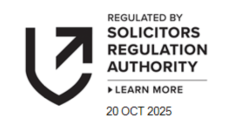Deportation, Detention And Immigration Bail
Call us on 0207 100 2525 for immediate help & assistance with your situation.
We’re here to help you in person, via the phone or online.
What Is Deportation?
Deportation is usually only applicable when a foreign national has a criminal conviction. Deportation can be ordered in the following circumstances:
- Where a court recommends deportation of an individual who is over the age of 17 and has been convicted of an offence which could be punishable with imprisonment
- If the Secretary of State believes the individual’s deportation is for “the public good and in the public interest”
- If an individual is under 18 and is the spouse, civil partner or child of a deportee
Bail For Immigration Detainees
Under UK immigration law, detention is the practice of holding people while they either wait for permission to enter the UK with approved immigration claims, or are removed from the country by deportation. Immigrant detainees have not necessarily committed any crime or criminal offence – immigration detention is not the same as being imprisoned. The Home Office will often proceed with detention if:
- There is reason to believe that the individual might escape if released from detention.
- The individual’s identity is yet to be established.
- That person’s removal from the UK through deportation is imminent.
Immigration detention is an administrative process, which means that the decision to grant bail is made by immigration official or immigration officer. If your bail application is denied, however, you can appeal to a judge to review your case.
If you have been threatened with detention, have a family member that is currently being detained and seeks bail, or removal directions have been issued for an individual to leave the UK, the immigration department at Adam Bernard Solicitors is here to help. The nature of these appeals is sensitive and demands an acute understanding of the British immigration system to best support our clients.
At Adam Bernard Solicitors we will take on the fight of our clients to ensure that their liberty is not compromised unjustly. We are passionately against the UK’s policy of detention and this ethical stance motivates the work we do. We will ensure that every possibility is exhausted in order to protect your claim.
Across both of our London offices we have a wealth of experience in managing immigration issues of our client’s that fall within the remit of this area. We are best equipped to ensure that your application has the highest chance of success and that your liberty is upheld.
What Are The Consequences Of Immigration Detention?
As well as being removed from the UK, you face the risk of also being banned from applying for a new visa or entering the UK for a period of up to 10 years.
What Are The Consequences Of Immigration Detention?
As well as being removed from the UK, you face the risk of also being banned from applying for a new visa or entering the UK for a period of up to 10 years.
How Long Could I Be Kept In Immigration Detention?
Under UK immigration law, there is no fixed or maximum period of detention in place currently. As a general rule, the period of immigration detention that someone might be held for rarely goes up to more than six months.
Since 2016, the new Immigration Act has seen automatic bail hearings become part of immigration detention policy. This means that if you are an eligible immigration in detention, you will be automatically forwarded for a bail hearing after four months of detention.
However, it is worth noting that this only applies for immigrants who have not manually applied for bail themselves. If you do and are unsuccessful, you will then be automatically referred four months later.
If you are due to be removed from the UK due to imminent deportation orders, then you might not be released from detention even if you are successfully granted bail.
If your deportation date is within 14 days of you successfully getting bail, then the Home Office will need to officially agree to your release before your removal from the UK.
If you believe or suspect that your period of detention has been unlawfully long, our expert immigration lawyers here at Adam Bernard Solicitors can help you to approach the High Court for a case review.
In some extreme cases, it is possible to find financial compensation for time spent in immigration detention.
Get in touch with us to find out more, our lawyers are always on-hand to offer. We are ready to assist.
How To Get Out Of Detention
Detaining immigrants should only be done for as long as what the law determines as a reasonable period of time, protecting detainees from lengthy detention. There is also legal power to keep detained immigrants only where there is a ‘realistic prospect of removal’ after being held in immigration custody. The Home Office and Immigration Authorities need to hold regular detention process reviews and to justify the legal status of detaining immigrants.
Because of this, it is possible to formerly request to be released from an immigration detention facility. You are permitted in certain immigration cases to request release from detention by making a request for temporary admission or bail.
There are two main ways in which you can do this. This can sometimes depend on where your deportation process is considered ‘imminent’ or not. A removal case may also depend on the applicant’s ability to have emergency travel documents issued in order to allow the foreign national to travel back to their home country via an international airport or other travel. It is worth noting that immigrants facing deportation orders may also face other barriers that prevent their ‘imminent’ deportation.
There are effectively two commonly used ways to get out of immigration detention centres, and which is most suitable for you depends on your current situation. The two main ways of applying for immigration bail in the UK:
- Home Office Bail (also known as ‘Secretary of State bail’, approved personally by the Secretary of State). You can apply directly for Home Office Bail any time after arriving in the UK in order to sort out your immigration matters. You can apply whether or not you have been detained.
- First-Tier Tribunal Bail (Immigration and Asylum Chamber granted by an immigration judge). You can only apply for First-Tier Tribunal Bail when you have been in the UK for eight days or more. You can also only apply for this if you are currently in detention.
Anyone who has either been detained or is liable to be detained might be eligible to apply for and be granted immigration bail in England and Wales. In order to do so, you will need to fill in and file an official immigration bail application form. This is known as form 401, and under UK immigration law and refugee law, you have full right to access legal advice and all the necessary paperwork to apply for bail. However, you can only submit your bail application and form 401 after you have been detained in the UK for at least seven days or more.
Who Is Eligible For Immigration Bail?
Basically, anyone who is being held in detention at a detention centre, prison, or immigration removal centre can become a bail applicant and apply to be released from detention. Of course, you must have being held on immigration matters in order for this to apply for you.
There are certain conditions that may either make it more or less likely for you to successfully apply for immigration bail. You may be more likely to get bail if:
- You have a place to stay in the UK. Having a bail address that the immigration authorities can rely on to keep in touch with you can help to increase the chances of a bail applicant successfully being released.
- You have at least one ‘Financial Condition Supporter’. This is a person who will pay money if you fail to follow the bail conditions set at your release. This can be in cash or, in Scotland, in bail bonds. This person will also attend any bail hearings that you are involved in. Having a reliable Financial Condition Supporter boosts your chances of success when applying for bail.
We always recommend that you include information about your intended bail address and the personal details of your Financial Condition Supporter in your initial application form in order to strengthen your case.
Potential Ineligibility
There are some conditions that may make it more difficult for you to successfully convince the Home Office and Immigration Service to release you from detention, including if:
- You have broken bail conditions in the past. If you have previously been in a situation where you have breached your bail conditions knowingly, this may reflect poorly with the border agency and UK Home Office. This could make it harder for you to appeal for bail.
- You have a criminal record. If you have got a previous criminal record and there is reason for the border agency and Immigration Services to believe that you may reoffend, you may find it more difficult to successfully get bail. In particular, if you were in breach of immigration law, refugee law, or international law, then this reflects poorly in your application.
- If the immigration authorities believe that your release may pose a threat to national security of the public interest, then it is highly unlikely that you will get bail.
Applying For First-tier Tribunal Bail
If the Home Office refuses your application for bail, you can then proceed to apply for the First-Tier Tribunal bail instead. To do this, you will need to fill in and submit form B-1, after which there is a chance of being granted bail hearings in front of an independent immigration judge. You can download a version of form B-1 online and fill it in that way. Alternatively, you can ask the chief immigration officer or detention centre staff where you are being held for the paperwork.
You can also contact the tribunal directly in order to request the B1 form. However, it may be important for you to know that the Tribunal cannot grant you bail if you are facing deportation orders imminently and will be removed from the UK within 14 days.
In the event that a bail applicant’s request is refused and denied by the First-Tier Tribunal, you will not be able to submit another bail application for 28 days – the Tribunal will automatically refuse any application for bail made 28 days after the initial refusal. If you are determined to present a second request, then you need to be able to convince the Tribunal that there has been a significant and material change in your current circumstances. This must be done in writing and submitted alongside your bail application.
If you currently have a tribunal appeal bail hearing scheduled, then you should send the B-1 form directly to the tribunal or bail hearings centre where it is happening. If you do not have an appeal hearing already scheduled, you may need to ask staff at your detention centre to send the application for you.
Applying For Home Office Bail
It is necessary for immigration detainees to apply for Home Office bail first before applying for the First-Tier Tribunal bail. However, it is worth noting that this is not likely to be granted in most cases. In order to successfully apply for Home Office bail, you will need to provide comprehensive documentary evidence and persuasive information arguing why you should not be detained under the immigration law of England and Wales. This is often reliant on persuading the Home Office that they were incorrect to detain you in the first place. You are free to apply for Secretary of State bail from the very first day that you arrive in the UK.
One of the benefits, however, of applying for Home Office bail is that they will need to provide their exact reasons for detaining you. This can be useful when moving forward with your immigration bail application.
To apply to the Home Office, bail applicants will need to fill in form 401 which should be available from the welfare office or chief immigration officer in detention centres across the UK. There is also an online version. If you are in prison, the paperwork will be available in your detention paperwork pack.
The Home Office staffs decide your bail application to the Secretary of State only. There are no bail hearings for applications for Home Office bail.
What Is Automatic Bail Referral?
If you have been in detention for four months or longer, you might be automatically referred for bail hearings with an immigration judge under the First-Tier Tribunal. You can also appeal to the Special Immigration Appeals Commission for bail instead in certain situations, which requires a slightly different process.
Under the new bail regime of England and Wales, the Home Office will automatically refer you to the First-Tier Tribunal for bail hearings, making you an automatic bail applicant. This will only happen if all of the following are true in your case:
- You have been in immigration detention for four months or more.
- There are no current deportation orders or plans to remove you from the UK.
- You are not being detained with convicted prisoners or because of a criminal record in the interests of national security and public interest.
- You have not yet applied for bail to the First-Tier Tribunal in the last four months.
If this is the case, then the UK border agency and Home Office will make an application for bail on your behalf with the information that is available to them. You can choose to refuse the referral if you wish, or you can choose to submit your own bail application instead.
What Is Automatic Bail Referral?
If you have been in detention for four months or longer, you might be automatically referred for bail hearings with an immigration judge under the First-Tier Tribunal. You can also appeal to the Special Immigration Appeals Commission for bail instead in certain situations, which requires a slightly different process.
Under the new bail regime of England and Wales, the Home Office will automatically refer you to the First-Tier Tribunal for bail hearings, making you an automatic bail applicant. This will only happen if all of the following are true in your case:
- You have been in immigration detention for four months or more.
- There are no current deportation orders or plans to remove you from the UK.
- You are not being detained with convicted prisoners or because of a criminal record in the interests of national security and public interest.
- You have not yet applied for bail to the First-Tier Tribunal in the last four months.
If this is the case, then the UK border agency and Home Office will make an application for bail on your behalf with the information that is available to them. You can choose to refuse the referral if you wish, or you can choose to submit your own bail application instead.
Who Is Liable To Face Immigration Detention?
If you are a non-EEA national travelling to the UK, then you may be wondering whether you could face detention. The fact is that any individual in the UK who is subject to immigration control due to their immigration status might be liable. If this applies to you, then under certain circumstances, you could find yourself held in immigration centres for certain immigration purposes. However, this is particularly likely in certain situations, including:
- If you have in fact entered the UK illegally, or have been breaching the rules of your visa. This might include working in the UK without permission or overstaying the time period in which your visa is valid.
- If you are an individual subject to immigration control who is still waiting for the outcome of their investigation.
- If you have been specifically refused leave to enter or remain, and yet have either failed or refused to abide by the conditions of your immigration status in the UK.
Regardless of your particular circumstances and situation, we always recommend seeking expert and professional legal advice as soon as possible if you find yourself held in immigration detention. It is in your best interests to submit your bail application as quickly as you can, and the experienced team of immigration lawyers here at Adam Bernard can help you.
If you or someone you know has been held in detention, we advise getting in touch with immigration experts as soon as possible. At Adam Bernard Solicitors, we can assist with immigration bail guidance for deportation cases or asylum cases
Get in touch with us today to discover more about how we can help.
Why Our Skilled Worker Visa Solicitors?
- Our team of immigration solicitors in London are passionately against the UK government’s policy of detention. We will strive to ensure that every avenue is covered to protect the liberty of our clients
- We have years of experience in completing bail applications for our clients. We have achieved numerous successes as evidenced through our client testimonies.
- In order for your case to stand the best prospect of success, visit one of our London offices to ensure that you are comprehensively represented by one of our team






